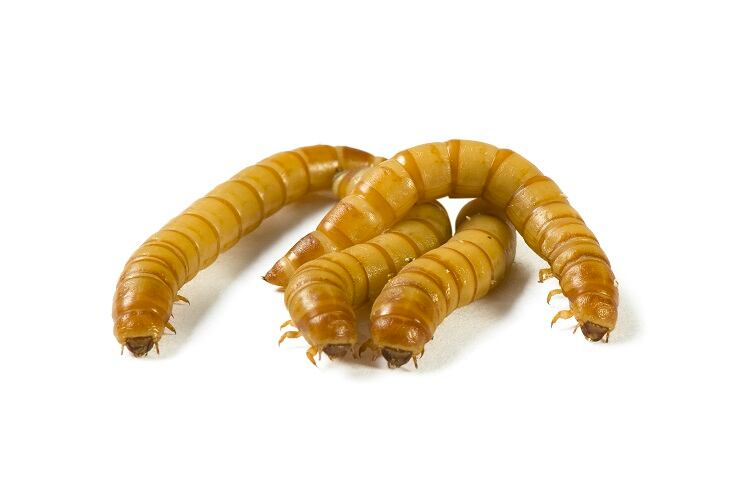Insects have attracted significant interest as an alternative source of dietary protein. Not only do they contain essential amino acids and trace minerals and vitamins, but insects have strong sustainability credentials.
Crickets, for example, are said to produce 11 times more food than cattle for the same amount of feed and 1,000 times less water. Mealworms produce at least 14 times fewer greenhouse gas emissions than cattle.
How insect protein – and in particular, mealworm protein – stands up against the ‘gold standard’ milk protein, however, has yet to be investigated. Researchers from Maastricht University in the Netherlands have sought to do just that.
Protein digestion and amino acid uptake
Dutch agri-tech Protifarm, which was acquired by Ÿnsect in April this year, provided its Buffalo mealworm (Alphitobius diaperinus) for the double-blind randomised trial.
Both mealworm protein and milk protein (80% casein, 20% whey) were investigated for their impact on digestion, absorption, and on participants’ ability to stimulate muscle production.
Findings revealed that mealworm protein matches that of milk protein. Further, it contains all essential acids and is efficiently digested in the human body.
To determine this, the researchers added stable isotope labelled amino acids to the foods of the larvae of the Buffalo mealworm. When these larvae were digested by study participants, the amino acids could be tracked throughout the human body, from protein digestion to amino acid uptake.
In this way, they were also able to explore their use as building blocks to build muscle tissue. A similar process was undertaken for labelled milk protein.
“We used a unique isotope labelling approach to prove rapid digestions and effective stimulation of muscle protein synthesis following the ingestion of Buggalo mealworm,” explained lead researcher Professor Dr Luc van Loon.
“The observed response did not differ from the ingestion of a similar amount of milk protein. It is great to see a protein source that combines both excellent functionality with sustainability.”
Marrying performance, health, and sustainability
The research comes less than two months after the European Food Safety Authority (EFSA) published a safety assessment on the dried yellow mealworm, concluding the insect-derived food product is safe for human consumption.
For Protifarm and Ÿnsect, the Maastricht study proves that mealworm is the only protein on the market able to combine performance and health – covering digestion, absorption, muscle synthesis, as well as reduction of cholesterol in the liver and plasma – with ‘naturalness’ and sustainability.
“in short, Buffalo mealworm proteins offer the best of both worlds by providing a high quality protein that is produced in an extremely sustainable environment,” said Protifarm CEO Tom Mohrmann.
“Insects will truly be the next sustainable protein source that matches the quality of dairy and the sustainability of many plant-based alternatives. This will open the world up to new food product development.”
For CEO of parent company Ÿnsect, Antoine Hubert, the study ‘once again’ demonstrates mealworm’s beneficial effects on both performance and health.
“After having demonstrated the effects of the protein on cholesterol reduction, we are now able to prove its effects on performance by comparing our insect protein to milk protein, [which is] already considered a very premium ingredient.”
Source: The American Journal of Clinical Nutrition
‘Insects are a viable protein source for human consumption: from insect protein digestion to postprandial muscle protein synthesis in vivo in humans: a double-blind randomized trial
Published 21 May 2021
DOI: https://doi.org/10.1093/ajcn/nqab115
Authors: Wesley J H Hermans, Joan M Senden, Tyler A Churchward-Venne, Kevin J M Paulussen, Cas J Fuchs, Joey S J Smeets, Joop J A van Loon, Lex B Verdijk, Luc J C van Loon.




